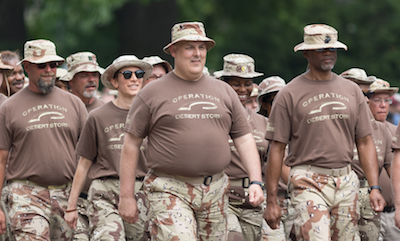(91outcomes.com – March 18, 2019) – Newly published results of a study of a large cohort of U.S. veterans of the 1991 Gulf War show a higher risk of numerous chronic health conditions, as compared to the general population. The excess risk was linked to reported exposure to Gulf War chemical weapons or an experimental drug troops were forced to take without informed consent.
Seven of nine surveyed conditions were shown to be at elevated risk among the veterans, including high blood pressure (HBP), high cholesterol, heart attack, diabetes, stroke, arthritis and chronic bronchitis.
For veterans reporting chemical weapons exposure, they showed higher risk of HBP, diabetes, arthritis, and chronic bronchitis. Those who reported taking pyridostigmine bromide (PB) nerve agent protective pills (NAPP’s), showed increased risk of heart attack and diabetes.
For veterans reporting chemical weapons exposure, they showed higher risk of HBP, diabetes, arthritis, and chronic bronchitis. Those who reported taking pyridostigmine bromide (PB) nerve agent protective pills (NAPP’s), showed increased risk of heart attack and diabetes.
“Gulf War veterans are showing accelerated aging patterns resulting in

